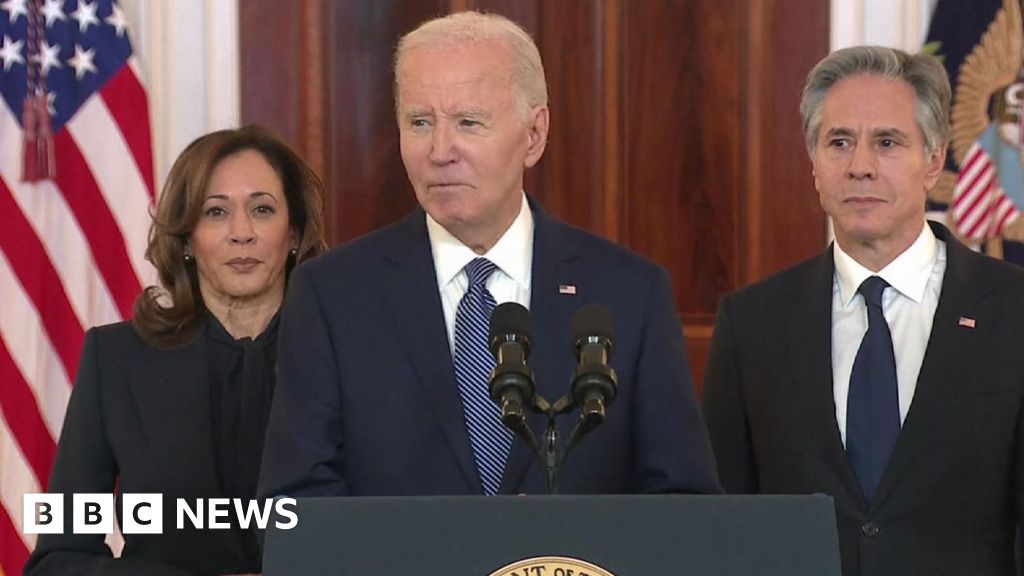
Volunteers working with rescue teams say no more illegal miners are believed to be trapped underground at a South African gold mine.
At least 78 bodies and more than 200 survivors have been rescued since Monday after a court ordered the government to assist rescue operations at the mine, one of the industry’s worst tragedies.
Police said they would check on Thursday to see if no one was left, at which time a rescue cage would be lowered into the mine.
The standoff began in November, when the government ordered police to arrest any miners who showed up and said it was determined to end illegal mining.
This story contains a video that some people may find distressing.
During a visit on Tuesday, the police and mining ministers were insulted and asked to leave by an angry crowd who blamed the government for the deaths.
Police said more than 1,500 miners had surfaced before rescue operations began, Reuters reported.
Others, however, remain underground, either out of fear of arrest or forced to stay there by the gangs that control the mines.
A spokesman for the South African Police Service said of the volunteers’ statement that no one was now underground: “We will be relying on the Mine Rescue Service to confirm this with their state-of-the-art equipment which will hopefully be able to assist rescuers. “We can see what’s going on underground.
“Mine Rescue has confirmed that they will be sending cages underground in the morning to see if any illegal miners surface with cages. We cannot confirm at this stage that the operation has been called off.”
Over the past three decades, many mines in South Africa have been abandoned by companies that deemed them not economically viable.
The mines have been taken over by gangs, often former employees, who sell the minerals they find on the black market.
These include the Steelfontein mine, about 145 kilometers (90 miles) southwest of the country’s largest city, Johannesburg, which has been the focus of the government’s crackdown on the illegal industry.
A rescue cage has been moved down the shaft to help dozens of miners thought to be at least 2 kilometers (1.2 miles) underground.
Many survivors have been without food and water since November, leaving them emaciated. They are now receiving medical care.
Authorities said they would be charged with illegal mining, trespassing and violating immigration laws, as most of the miners are undocumented immigrants from neighboring countries.
“This is a crime against the economy, an attack on the economy,” Mines Minister Gwede Mantashe said on Wednesday as he defended his tough stance against miners.
Before the industry fell into recession, South Africa relied heavily on miners from countries such as Lesotho and Mozambique.
South Africa’s unemployment rate currently exceeds 30%, and many former miners say they have few other sources of income.







